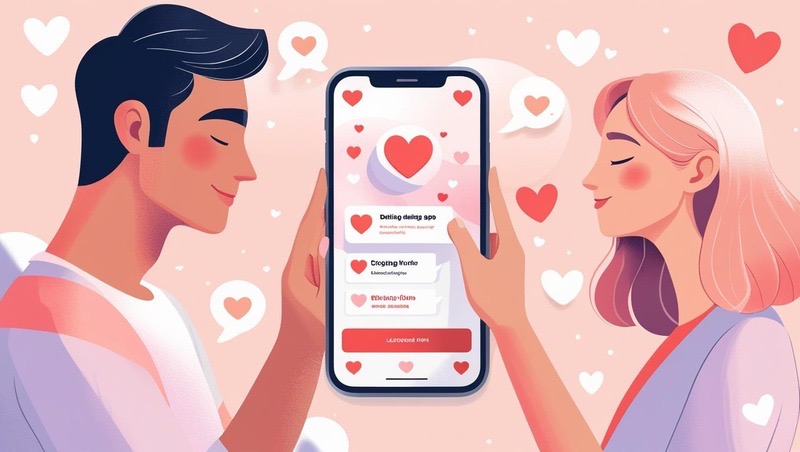
Red Flags You Should Never Ignore While Dating
Let’s be real—when we’re attracted to someone, we tend to overlook things we shouldn’t.
Maybe it’s that sarcastic comment that didn’t sit right. Or how they avoid answering personal questions. Or the way they blame every ex without a hint of self-reflection.
It’s easy to chalk it up to nerves or chemistry. But here’s the truth: those little red flags are often early warning signs of much bigger problems.
Whether you’re newly single or just trying to be smarter in love, learning how to recognize and respond to red flags will save you from heartbreak, wasted time, and unhealthy relationships.
This guide will walk you through the most common, subtle, and dangerous red flags—so you can spot them early and move forward with confidence.
Table of Contents
- Why Red Flags Matter So Much in Early Dating
- 1. They Have a Trail of “Crazy” Exes
- 2. They Love-Bomb You Too Quickly
- 3. They Avoid Defining the Relationship
- 4. They Struggle With Consistency
- 5. You Feel Confused More Than Excited
- 6. They Cross Small Boundaries (and Laugh It Off)
- 7. They Don’t Ask About You
- 8. You Just Don’t Feel Safe to Be Yourself
- FAQs
Why Red Flags Matter So Much in Early Dating
According to experts at Verywell Mind, red flags often indicate patterns that lead to emotional manipulation, power imbalances, or long-term dissatisfaction.
It’s not about being paranoid or hypercritical. It’s about trusting your instincts and protecting your peace.
If something feels “off,” it’s usually for a reason.
1. They Have a Trail of “Crazy” Exes
If someone describes every ex as “crazy,” “toxic,” or “emotionally unstable,” pause.
🚩 Why it matters:
People who never take responsibility for past relationships often:
- Repeat the same behaviors
- Lack self-awareness
- Might be manipulating you into sympathizing with them early on
Try asking: “What did you learn from your last relationship?” If they only place blame—it’s a red flag.
2. They Love-Bomb You Too Quickly
Compliments are nice. So are good morning texts. But when someone you just met suddenly calls you their soulmate or makes huge emotional declarations—slow down.
🚩 Why it matters:
Love bombing is a manipulative tactic to:
- Win fast trust
- Create false intimacy
- Gain control early
Real connection builds with consistency, not intensity.
As PsychCentral notes, early over-adulation is often followed by sudden withdrawal or criticism.
3. They Avoid Defining the Relationship
If you’re several weeks or months in, consistently spending time together, and they still dodge questions like “What are we?”—take that as data.
🚩 Why it matters:
Avoiding clarity often means:
- They’re keeping options open
- They’re emotionally unavailable
- They don’t want accountability
You deserve someone who is proud to claim you, not someone who keeps things conveniently vague.
4. They Struggle With Consistency
They text you constantly for three days, then vanish for a week. They make plans and flake. They say they’re “busy” but are always on Instagram.
🚩 Why it matters:
Consistency is one of the best signs of emotional maturity and availability.
Someone who’s into you:
- Shows up
- Communicates honestly
- Doesn’t leave you guessing
Hot and cold behavior might feel like passion—but it’s more often emotional confusion or manipulation.
5. You Feel Confused More Than Excited
This one’s about your gut, not their words.
🚩 Why it matters:
Healthy relationships feel secure—not like puzzles you’re trying to solve.
Ask yourself:
- Do I feel anxious waiting for them to reply?
- Do I second-guess what I can say or share?
- Do I walk away from dates feeling unsure or drained?
Confusion is a red flag. Real connection brings clarity.
6. They Cross Small Boundaries (and Laugh It Off)
Did they make a joke at your expense? Push your physical limits after you said “not yet”? Dismiss your feelings with “you’re too sensitive”?
🚩 Why it matters:
Small boundary-crossings often escalate into bigger violations.
Trust people who:
- Respect your limits
- Apologize without deflecting
- Adjust their behavior
It’s not cute. It’s not flirty. It’s disrespect. Don’t minimize it.
7. They Don’t Ask About You
If you realize most conversations revolve around their life, their job, their opinions—it’s time to check the dynamic.
🚩 Why it matters:
One-sided interest is a subtle form of narcissism or emotional immaturity.
Healthy partners:
- Ask you meaningful questions
- Remember your stories
- Care about your experiences
If you feel like an audience instead of an equal, that’s a flag.
8. You Just Don’t Feel Safe to Be Yourself
You’re hesitant to show your quirks. You’re nervous they’ll judge your opinions. You find yourself shrinking to “fit” their vibe.
🚩 Why it matters:
Emotional safety is the foundation of any good relationship.
When you don’t feel seen or respected for who you are—it’s not connection, it’s code-switching. And it’s exhausting.
You deserve to be your full self. Not your curated, edited, “maybe-they’ll-approve” version.
FAQs
Q: Are all red flags deal-breakers?
A: Not always. But repeated, ignored red flags often lead to pain. Use them as information—and see if the person is willing and able to grow.
Q: How do I bring up a red flag without scaring them off?
A: Use “I” statements and curiosity:
“I noticed [X]. I value [Y]. Can we talk about that?”
Mature people welcome feedback.
Q: Can red flags be fixed with communication?
A: Some can. But many are patterns, not just problems. Don’t date potential—date reality.
Q: What’s the difference between a red flag and a personal preference?
A: A red flag impacts emotional safety. A preference is about compatibility.
(Example: “He hates dogs” = preference. “He belittles you” = red flag.)
Q: How do I leave a relationship if I’m seeing red flags but feel attached?
A: Start by writing down what you’re experiencing. Talk to a friend or therapist. Make a decision from your highest self, not your most emotional one.
Dating isn’t about finding someone who looks good on paper—it’s about finding someone who feels good to be around.
The sooner you recognize red flags and act on them, the more energy you save for what actually matters: a relationship built on safety, respect, and real connection.
Want a follow-up like “Green Flags to Look For on a First Date” or “How to Trust Yourself After Dating a Narcissist”? Just ask—I’ll write it next.


